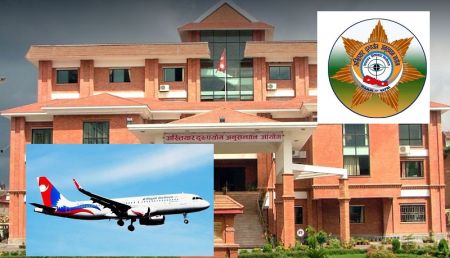--By Rojan Baniya
The emergence of the importance of marketing research to Nepali business managers has, in recent times, become increasingly visible. Nevertheless, the way research has to be carried out has not settled well in the mind of Nepali Managers. Let’s now get into their mind-set regarding marketing research.
First, the research should be gratis; in business we will pay for advertising, for packaging, for raw materials and many other things, but why should we pay for marketing research? The research is just a cost that we really don’t want to bear. Just like we are hesitant to pay for software, businesses don’t like to pay for research- research should be obtainable for free– the free meal syndrome
Second, marketing research should answer all the issues. Since we choose to do marketing research, why not ask some more useful questions that are unrelated to the issues at hand? We are really not concerned with the discomfort respondents have to go through. Let’s ask a little bit about brand image too, though my objective is just to check customer satisfaction – the world is not enough syndrome
Fourth, I have a well-prepared report on my desk. Now the marketing researcher should use the magic wand to provide me with solutions too. How shall I implement the report? Yes it says, my customers are not satisfied with the way my staff behave, and the researcher presented it with a nice PowerPoint, so what now? – the don’t know what’s next syndrome
Fifth, as an experienced manager, I know my customers; I am well versed in their needs, wants and demands, though I have rarely talked with them. So, notwithstanding marketing research, I already know the outcome of the research, and it should be as per my predicament – the know it all syndrome
Let’s have a crack at these syndromes.
When managers are making marketing decisions like rolling out new products, orchestrating new marketing campaigns or offering promotional plans, it generally involves a huge investment with the expectation of handsome returns. In the light of the lack of proper research, chances are one is shooting in the dark. Rather than putting the ladder against the wrong wall, it is wise to first identify the right wall through marketing research.
It is customary that such critical undertakings that can provide a direction to all marketing activities has some associated costs. The cost of research is well justified by the gains a company can make from the informed decisions based on it. Managers need to endorse marketing research as an investment - just like doing a feasibility study before putting up a plant in an area. It is an attempt to look before you leap, rather than leap and then repent. No more free meals with marketing research, one should be ready to pay the right price for right information.
In marketing research, one tries to get customer views. Replying to surveys, participating in focus groups, giving interviews are daunting tasks, if it is of no benefit to the customers. To make marketing research reliable and credible, one needs to keep it short and up to the mark. When we are dressed for a party, we don’t carry an extra pair of shoes around our neck just because we have it at home. Similarly, in marketing research, we also need to stay focused on defined objectives and not fall into the trap of becoming greedy trying to know everything in one single attempt.
The very essence of marketing research is to provide information to make decisions. These are decisions about making improvements, changes and finding solutions for the issues at hand. Being a fairly expensive investment, a well-conducted marketing research should help business managers make decisions that lead to positive outcomes and benefits.
Thus, the first question a marketing researcher will ask any client is what decisions are you going to make based on the marketing research? So, in the most direct way, after the marketing research, the client should make actionable decisions in the troublesome areas. Marketing research in itself is not the change; it is the basis on which the changes need to be made with management action based on it.
Managers tend to have preconceived notions about knowing what the customer wants and why. It cannot be denied that managers, being close to the market, have a good sense for it, but his/her hunch does not necessarily apply to the entire market.
If we revisit the three scenarios presented in the beginning, you will see in all the cases managers are clueless about the possible issues. However based on their understanding and hunches they can always predict, but can never be totally certain. The choice is either to rely on guesses or on marketing research. Managers try to influence research to get the results they want. This is wrong. Managers should avoid it. Also marketing researchers should be bold enough to share what the research is actually communicating.
As a business manager, if you want to make the best use of marketing research, then, be ready to invest to generate the information that will help you make critical marketing decisions. Let the research generate information related to set objectives. Use the information generated from the research to make marketing decisions. And finally, let the actual data tell the story keeping your biases aside. Only after these, can you realise the full potential of marketing research.





















